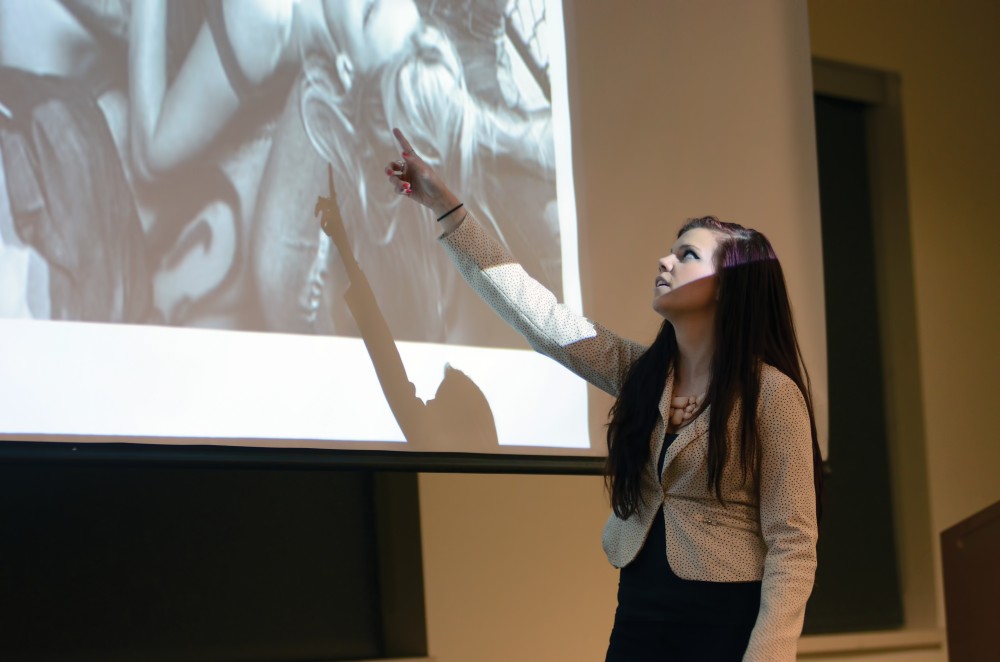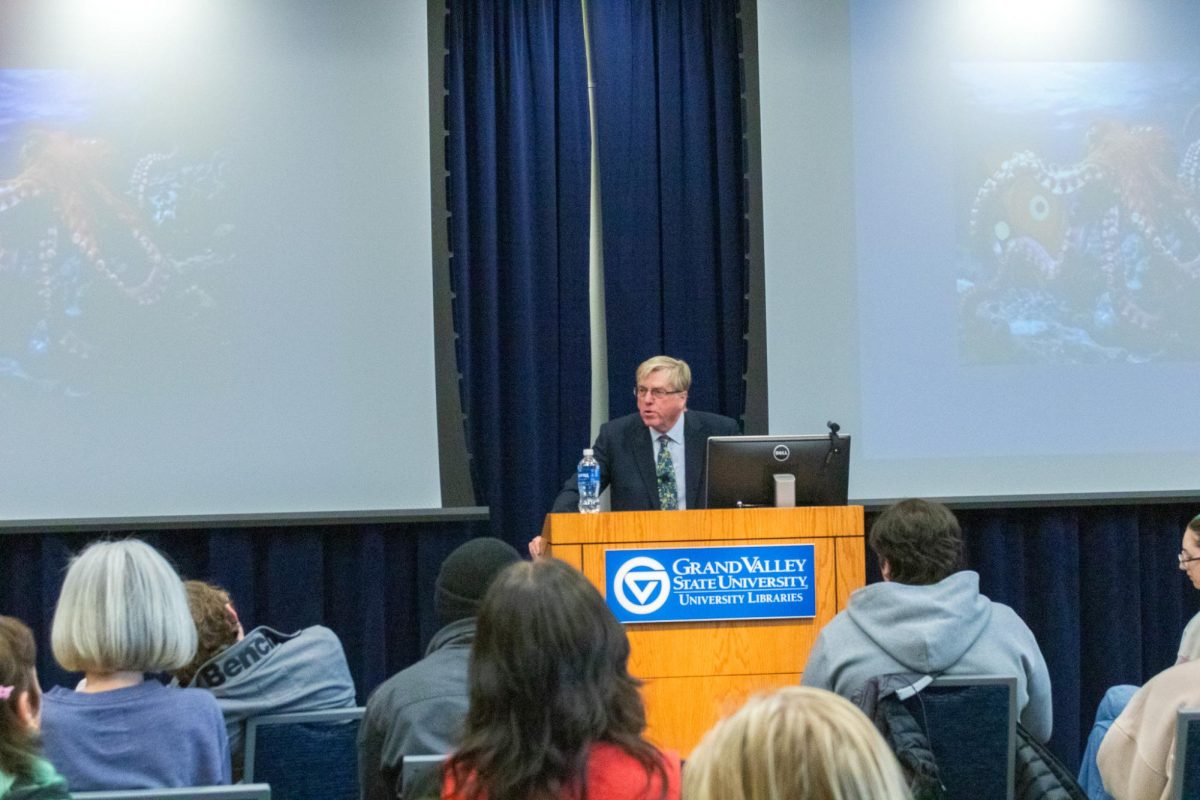Project Unspoken voices concerns

GVL/Kevin Sielaff Colleen Unsworth and Malayna Hasmanis give a presentation on current rape culture and victim blaming, entitled “Sexual Assault Awareness: Eyes Wide Open” in Kirkoff’s Pere Marquette room this past Friday.
Apr 6, 2014
The month of April typically symbolizes the beginning of spring, but it’s also known as Sexual Assault Awareness Month.
To remind students at Grand Valley State University, the student organization Eyes Wide Open held “Project Unspoken,” an event to develop a general consciousness of the effects that stereotypes and insensitive comments have on rape survivors. The event’s mission was to inspire an end to the misconception of victim blaming.
Attendees were shown a visual collage of students holding white boards with identified hurtful messages that are commonly stated, a slideshow of statistics regarding sexual assault victims, and an engaging presentation that educated viewers on rape culture and victim blaming.
“What tends to occur too often is that the responsibility of the crime is placed on the victim instead of the perpetrator,” said Shannon Blourne, co-chair of Eyes Wide Open. “We wanted to do a campaign for Sexual Assault Awareness Month to open peoples’ eyes so it’s there in front of them. We wanted to show the little things they do and say can have a huge impact. Simply by refraining, it can have a huge impact as well.”
Students were then given a presentation that elaborated on rape culture — the collective concept that attributes the idea of rape and sexual assault to being a mere part of the current culture in society rather than a wrongdoing.
“Generally people think that it is strangers that commit rape, but most of the time it’s actually done by people who know the victim. A majority of the time the perpetrator isn’t a stranger, it is someone who knows the victim,” said Dmitri Westbrook, a graduate student in attendance.
During the presentation, several statistics were given in support of Westbrook’s statement. In the U.S., 38 percent of rapists are friends or acquaintances. In addition, 60 percent of sexual assaults are never reported to the police.
“Some individuals are not aware at the amount of objectification toward women and that’s critical because women are not depicted as human beings, but viewed as objects instead of people,” Westbrook said.
The discussion furthermore expanded and educated on the role of gender stereotypes as well as its normalization and perpetuation of rape culture and victim blaming.
“When people say simple things like ‘Man up’ or ‘Don’t be a baby about it,’ these little comments enforce stereotypes and lead to the myths of rape, which is what leads to victim blaming,” said Collen Unsworth, secretary of Eyes Wide Open. “We want people to be more cognizant of the effects of the little things they say. The little things they say in passing may hold no meaning to them, but they do have an effect on people about rape.”
Blourne hopes that after the presentation, students will be more conscious about the words they choose.
“People tend to think and say, ‘She was so drunk’ or ‘She shouldn’t have drank that much.’ If she was wearing a short skirt, people would say, ‘Didn’t you see what she was wearing?’” she said. “It puts blame on the victim instead of asking, ‘Why did that guy do it?”






















